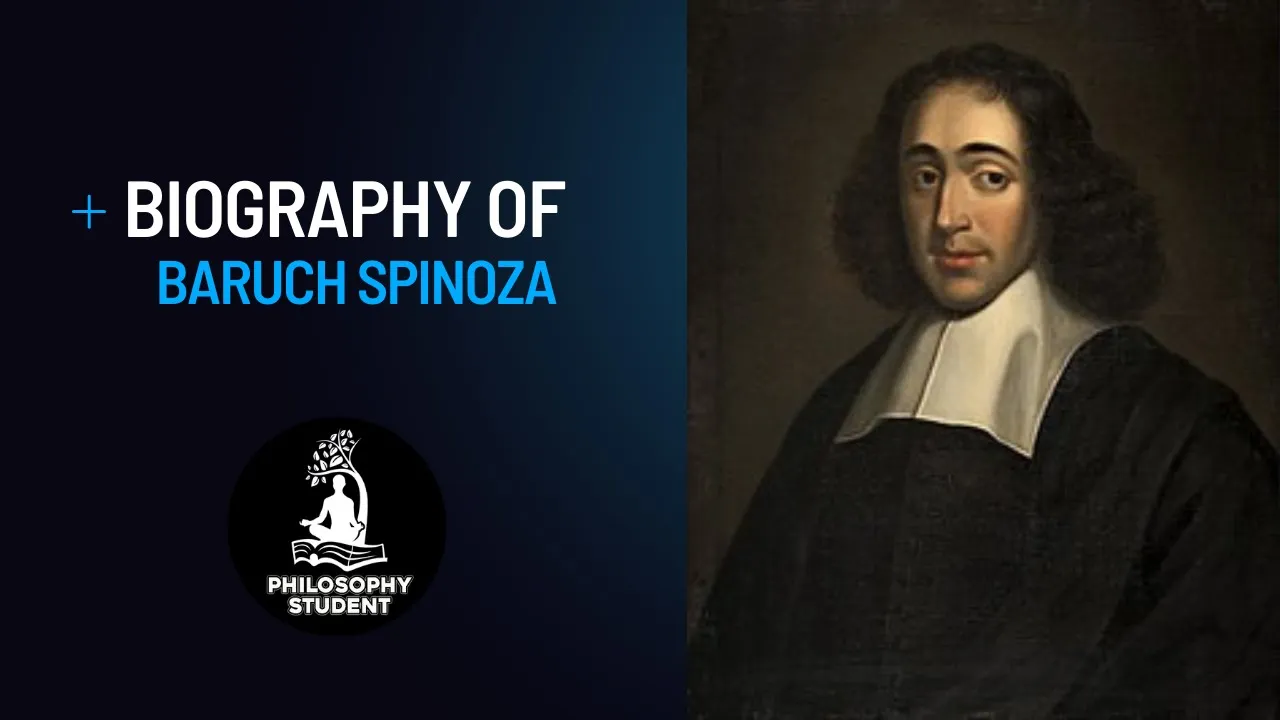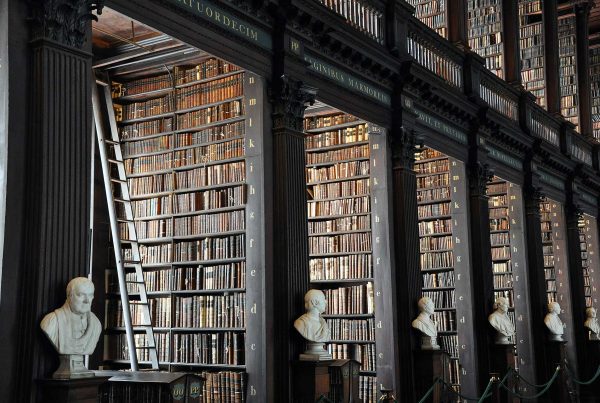In many respects, Spinoza was a philosopher of his age. He drew on Descartes for much of his epistemology and metaphysics and on Hobbes (as well as the ancient Stoics) for his ethics. His rational approach to religion was a well-established Jewish hermeneutic tradition. Yet he directed all these streams to a naturalistic view of God, strikingly impersonal, and conducive to a liberal approach to moral and political philosophy
He was born Baruch Espinosa in Amsterdam, Dutch Republic, on November 24, 1632 and was a Jew of Portuguese Sephardic descent. Although best known today as Baruch Spinoza, he signed his learned Latin and Dutch works “Benedictus de Spinoza.”
The middle son in a prominent family, he was educated at Talmud Torah school of Amsterdam and was likely destined for a career as a rabbi but withdrew from the school when he was seventeen so that he could help run his family’s importing business. On July 27, 1656, when he was in his twenties, the Sephardic community of Amsterdam effectively excommunicated him, issuing a herem for his “abominable heresies.” Although he had yet to publish his philosophical treatises, he must have already given voice to his rejection of the providential and transcendent God of Abraham as described in the Old Testament. Along with this, he may also have discussed his notion that the Law—Torah—was not given by God and was therefore not binding on Jews.
By 1661, he had abandoned Judaism and left Amsterdam to take up residence in Rijnsburg, near Leiden. He began composing Treatise on the Emendation of the Intellect, a work on epistemology and philosophical method (published posthumously in 1677). He then moved to Voorburg, near The Hague, and wrote a critical commentary on Descartes’ Principles of Philosophy (1663).
At this point, Spinoza was also composing his Ethics, which he temporarily laid aside to write Theological-Political Treatise (Tractatus Theologico-Politicus), which he published anonymously in 1670. Drafted in response to the encroachment of the Dutch Reformed Church on religious freedom and freedom of thought and expression, this work critically examines both contemporary Judaism and Christianity and the Scriptures on which both are based. Arguing for democracy and freedom of speech and religion, Spinoza proposes that the cardinal duty of the state is to guarantee liberty.
Spinoza made his living as a lens grinder and, from 1670 on, enjoyed a modest pension funded by two friends. Offered the chair of philosophy at the University of Heidelberg, he declined, preferring to work as what today would be called an independent scholar. He corresponded with the likes of Christiaan Huygens and Gottfried Leibniz. He died, in Voorburg, on February 21, 1677, at the age of forty-four.
Spinoza’s most radical and inflammatory argument is that while God exists, it is as an entity both abstract and impersonal. A monist, he argued that everything in the universe is one substance (Reality) and that “God” and “Nature” are merely two terms for the same thing. All the varied entities found in nature are “modes,” modifications flowing from the One.
God—the One, the universe—has infinite attributes, but Spinoza identifies the two most salient as thought and extension. In this way, the mental and physical realms are intertwined in that they derive from the same One. While Spinoza distinguishes mental and physical effects on the human mind, he denies the Cartesian mind-body dualism, arguing that the universal Substance flows through body and mind alike.
In Spinoza’s universe, God does not rule providentially but is, in fact, one with a deterministic system in which God could not have produced things in any other way but that in which they exist. Thus God is not transcendental with respect to the universe, and everything that happens, has happened, or will happen is the product of a chain of cause-and effect that neither God (the Creator) nor human beings can change. Thus, prayer is in vain. Nevertheless, knowledge of God enables people to formulate the best response to the world around them.
Where does this leave ethics? Spinoza’s determinism is so thoroughgoing that morality and ethical judgment eventuating in choice are based on an illusion. Blame and praise are alike ideals—more accurately, ideations—without basis in the real world. Ethics, therefore, must be based on a kind of Stoicism, with philosophy serving a therapeutic role by guiding people to happiness defined as moderating passion and reducing needs. Reason, Spinoza believed, could not simply overcome emotion. Only a stronger emotion could overcome a prevailing emotion. He therefore argued that “active” emotions—capable of rational understanding—could be used to overcome “passive” emotions, which were incapable of being understood. Do this, and a degree of happiness might be attained.
Good and evil, Spinoza, argued, are not intrinsically good or evil because everything proceeds from a determined necessity and is therefore perfect. We call some things good and some evil because they are either good or evil relative to humanity. With respect to the universe, however, all is necessary and therefore prefect. This being the case, the loftiest human virtue is knowledge of God or, what is precisely the same, knowledge of nature or the universe.




































